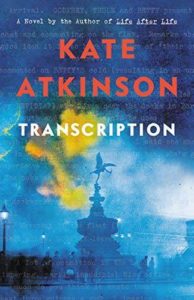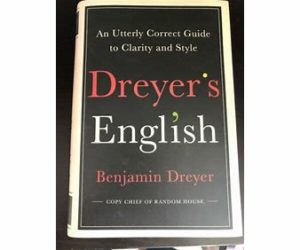
In the amber of the moment
“Here we are, trapped in the amber of the moment. There is no why.” Kurt Vonnegut.
I don’t know about you all but I’m feeling a bit trapped and find myself pacing the cage more often as the days slip into weeks of lockdown. One of the things I miss from the pre-C19 world is strolling through local bookstores. Portland has a healthy number of locally-owned book stores and each offers a particular joy to poke through. For me, a leisurely browse through a bookstore is better than a spa day. In truth, a few hours in a bookstore are as pleasing as a day spent on a tropical island, surrounded by friends, indulging in boozy revelry. And I think you know how much I enjoy boozy revelry. With friends. In the tropics.
What I am getting at is this, we have a house filled with thoughtfully collected books. Where once I was somewhat embarrassed about the dusty books stacked throughout the house, I am thankful now for my extravagances. I only wish I would have done the same with toilet paper.
During the first days of the shelter in place order I looked through our shelves for books about the olden days. Those days when people only had to worry about Hitler, food rationing, familial separation, and spies. You know, mostly like present day, only without the internet and much more spy-ier.
Warlight by Michael Ondaatje is a story about Nathaniel, who as the novel begins, is reflecting on his adventure-filled adolescent years. In 1945 Nathaniel is left in his London family house in the care of a mysterious fellow named the Moth. His parents have allegedly headed to Singapore for something to do with Nathaniel’s father’s job. But when Nathaniel finds their steamer trunks in the basement, trunks that should have carried his parents’ goods across the ocean, he understands it has all been a ruse. And then there are those likely sightings of his mother as he rambles through the London night…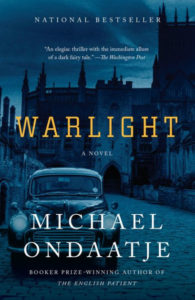
Nathaniel has a rich night life as a boy. He works weekend nights in a hotel the Moth manages with mostly immigrant staff and a delightful assortment of dicey characters; he smuggles dogs down the Thames with a someone called the Darter; and Nathaniel experiences first love with a girl who has keys to empty lush London homes, thanks to her brother who works in something akin to 1940s property management.
In the second half of the book Nathaniel is nearly 30 years old and is piecing together the fragments of his mother’s life through encounters with those characters from his past. And Nathaniel meets new people linked to his mother who are as mysterious and crafty as those from his adolescence, one oddly enough named Marsh Felon.
This is a mighty book that successfully takes on memory and metaphor. It is rich with images of days past that brim with moths, darters, felons, and spies. When you are ready to be whooshed into the past and out of the low hum of pandemic stress, pick this book.
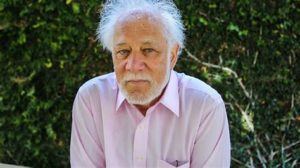
Transcription by Kate Atkinson is a story about Juliet Armstrong, who as a young woman in 1940 is recruited into MI5 to transcribe recordings of meetings in a bugged flat between a group of fifth columnists and a man named Godfrey Toby. The British fascists believe Toby is a Gestapo agent but he is a British spy. And while this is a fiction story, Toby is based on a real-life British agent.
The book follows Juliet, smart but naïve, through the war and into her postwar work in London at the BBC.
After years of all that pulse-racing spy action including disappearing ink, corpses rolled into rugs and hauled away into the night, constructed identities, recording devices hidden in walls, and a clunky love affair with an obviously homosexual man (come on Julia! how could you not know?) it would seem that Julia’s postwar world would be dull; she does after all produce BBC shows like, “English for the Under-Nines”. But she is being followed and receiving anonymous notes sent to her at work, warning, you will pay for what you did.
I have read every book Atkinson has written; each one has been worth the time.
The Rules of Civility is Amor Towles’ first novel and writing is Towles second or third career even though it was his first passion. I heard Towles speak at our literary society this past fall and wowie, he is charming and a gifted story-teller. I picked up his book after the session, and then put it down again on my TBR pile, allowing dust to settle on the cover for months. You have to look hard, but sometimes a pandemic can provide a kindly surprise.
This novel, like Warlight, is a look back by the protagonist, in this case a feisty first-generation daughter of Russian immigrants, Katey Kontent. It is 1966 when the story begins and Katey is enjoying an art opening in Manhattan. It is there she is shocked into recollections of the past when she recognizes a man in one of the photos, someone who changed her life 30 years ago. His name is Tinker Grey.
Katey and her best friend Eve meet Tinker on New Year’s Eve in 1937, in Greenwich Village where the friends “started the evening with a plan of stretching three dollars as far as it would go.” A friendship develops between the three and Tinker expands their world. High society and gin-fueled fun ensues, circa 1937.
Things progress and both women begin to fall for Tinker. Eve is more lovely (and conniving) but there is an undeniable spark between Katey and Tinker. Then one evening Tinker crashes his car while both women are riding as passengers and Eve is permanently disfigured. Tinker, who lives his life in accordance to George Washington’s rules of civility, is guilt-ridden and devotes himself to Eve. But by now everyone knows Tinker has stronger feelings for Katey.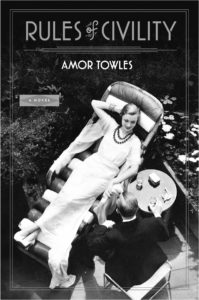
There are no spies in this one but the story will keep you turning pages because Towles has written a masterly character study and that includes a vibrant prewar New York City. I am all in for Towles’ second novel, A Gentleman in Moscow, a story about a man sentenced to house arrest in Moscow’s Metropol Hotel by a Bolshevik tribunal for writing a poem the tribunal designated as anti-Bolshevik. But I’ll wait to read that one after we are set free.

Dreyer’s English: An Utterly Correct Guide to Clarity and Style by Benjamin Dreyer. This is obviously not a book about days gone by, rather it is what it says it is, a writing guide. This may sound like an odd reading choice but Dreyer is funny, and surprise, he’s a great writer. He is also the executive managing editor and copy chief of Random House, so there is a good amount of heft behind his advice.
Dreyer shares some of his favorite tricks he uses to make good writing better. The book is easy to read because the writing is smooth and there are good amounts of humor spread throughout. I also have many oh, yea moments as I read, I like having those, it keeps me coming back.
The book begins by challenging the reader to stop using words such as “very”, “rather”, “really”, “quite” and “in fact” for a week, which Dreyer claims, will make a person a “considerably better writer than you were at the beginning”. And unable to stop himself Dreyer adds more words to the list including: “just” (used in the sense of “merely”), “so” ( in the “extremely” sense), “pretty” (as in “pretty tedious”), “of course”, “surely”, “that said” and finally, “actually”. Dreyer wraps up by saying this about “actually”, feel free to go the rest of your life without another “actually”.
Actually, I read the audio book is a charmer too.
Bye for now dear Scramblers. I have a walk to take and a book or two to read.


